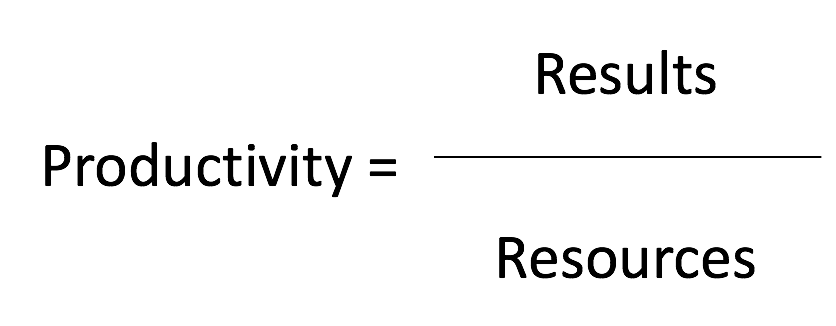What is Time Management?

If you're wondering, “What is time management?” you've probably also asked one or more of these as well:
- How can I juggle all the stuff on my plate without feeling stressed out?
- How do I prioritize what needs to be done?
- How can I do all these things faster?
- How can I do everything I need to do when it feels like there's not enough time to get it all done?
You've probably reached a point where there are a lot of different things happening in your life and you need a solution to manage everything in a balanced way.
Learning the definition of time management is just the tip of the iceberg. Underneath the surface, there’s a lot more substance to be explored.
This post is Part 1 of 4 that divides the entire iceberg into digestible chunks, offering a more in-depth explanation of what time management really is and how you can use it to create more balance in your life.
Productivity Defined
"You can't manage what you can't measure."
That's what management expert Peter Drucker said when he consulted some of the biggest, most prestigious companies in the world.
They would would hire him to make their organizations more productive.
But what does it even mean to be productive?
Generally, the essence of productivity can be summed up in two key questions:
- What results are being produced?, and
- What resources are being used to produce those results?
These questions are illustrated in the following formula:
Since there's more than one kind of resource, productivity can be measured in different ways.
When time is the primary resource being used, we measure that productivity in terms of how much (or how little) time was spent to produce a given result, and we call this kind of productivity time management.
Other subsets of productivity include financial management, energy management, and more...
Time management is often a lop-sided conversation, though.
It's not just about minimizing the amount of time being used to produce a result, it's also about maximizing the amount of time being used on the right result, one that is useful and desired.
You can find plenty of tips and tricks about how to save time—how to do things faster, how to do less, how to say no—but there's very little out there about how to spend time.
Time Management Defined
Time management is a skill used to effectively juggle the various demands that call for one’s attention.
These “demands” encompass all areas of life: school, work, family, friends, personal interests, curiosities, and ambitions, etc...
The truth is, everyone juggles different things on a daily basis. But those who juggle well have developed effective time management skills.
Managing time effectively means directing energy in a way that achieves a specific, desired result. And you can only measure effectiveness if you've identified your desired outcome.
If you don't achieve your desired result, some may claim that "poor time management" is the primary reason.
On the other hand, if the desired result is ambiguous (or if no specific result has been identified), time management can't be really be considered.
The reason is, we're producing results every moment of our life.
We're a creative species, and whether you know it or not, we're producing results every moment of our life. The question is, are we producing desired results?
Every time you drive your car, you're producing a result: your movement from one place to another.
Effectively apply the skill of time management and you may get from Point A to Point B a little faster, or use less gas, or stack another result (like listening to an audiobook).
Do you now understand what time management is?
If so, the next question naturally becomes, "How do I improve?"
The short answer is: with practice and patience, like any other skill.
You may not like this answer, but this practice pays dividends and it's one of the best investments you can ever make.
For a quick-start guide on how to improve your time management skills so you can achieve anything you want, start here.
On the other hand, if you want to dig a little deeper and look below the surface level understanding, then continue reading...
Click here to read Part 2 of 4.

